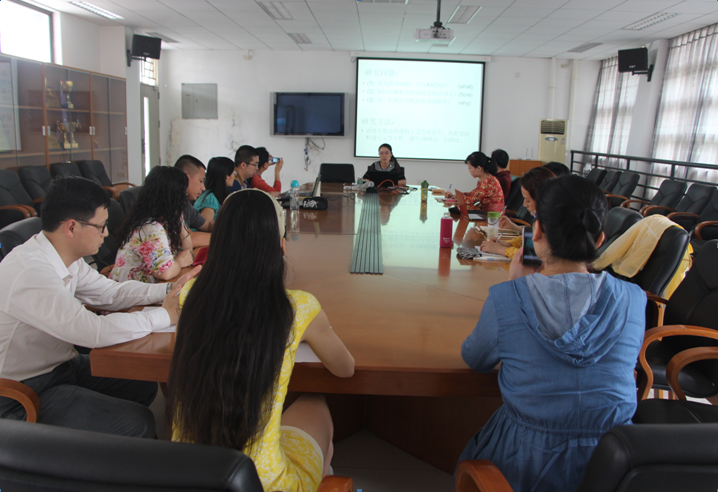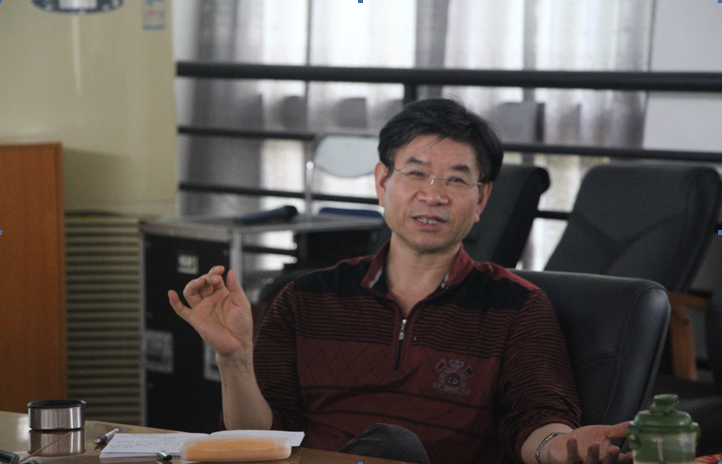Topic:Exploring the Cognitive Mechanism in E-C Translation of Novel Metaphors in Economicand Financial News
Time:15:00-17:00April 22, 2015
Venue:A421, Building 6
Participants:PhD candidates, teaching staff, postgraduates and senior visiting scholars
Chairperson:Pro. Zeng Lisha
Speaker:Wang Junchao
Recorder in English: Lan Keran
The forumstarted with a presentation given by Wang Junchao, a PhD candidate, on the topic “Exploring the Cognitive Mechanism in E-C Translation of Novel Metaphorin Economic and Financial News”. Her presentation mainly covered several aspects. She first reviewed the current studies of business metaphors at homeand abroad, pointing out four weaknesses: 1) top-down research without problem-solving orientation; 2) cases under the discussion lacking typicality,sub-categorization and authenticity; 3) ignorance of the cognitive mechanism in the process of metaphor translation; 4) limitations in generalization of translation strategies or methodology. Next she defined the key concepts and their typical characteristics, followed by an introduction of the analytic framework. Then, she demonstrated a vivid and detailed analysis of a typical case.
Wang Junchao’s research plan and case study aroused great interest of the participants and triggered heated and in-depth discussion. The discussion focused on the difference between novel metaphors and conceptual metaphors along with the collection and analysisof the typical cases. It was pointed out that the boundary between novel metaphors and conceptual metaphors is not clear-cut, and the definition of novel metaphors tended to be subjective to some extent. Furthermore, the analysis of typical cases should be more thorough.


Professor ZengLisha made comments on the above arguments and clarified the relation between novel metaphors and conceptual metaphors by pointing out that novel metaphors fall into conceptual metaphors and their distinctive characteristics can be seen in the degree of defamiliarization whose accurate interpretation greatly relies on business contexts. Then he showed his understanding of how to make scientifically academic study by emphasizing the importance of scientific definition of concepts and sizable corpus collection, especially the importanceof making categorizational study along with relevant manifestation of rules or laws revealing the essence of the phenomenon. According to him, the research methods employed should be purpose-driven together with both macroscopic and microcosmic perspectives. Besides, the most significant thing is that full consideration of the context should be involved in case analysis.
Professor Zeng’s profound academic knowledge enlightened those present. The forum proved to be an attractive academic gathering and all the participants are looking forward to the next one.
